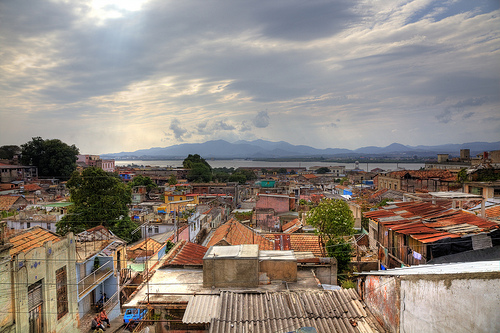Buying property in a foreign country can be quite a complicated procedure. This is especially true in the case of Cuba as there are several restrictions on the ownership of houses even for citizens of the country. For more than half a century now, people haven’t been able to freely buy or sell houses on this Caribbean island.The real estate market in Cuba is hard to describe, as it is unlike any developed nation in the world. For starters, estate agents are very difficult to find. Moreover, if you do get someone to help you with closing a property deal, don’t expect them to know the correct price of the houses that you are interested in.
While the locals are now allowed to own, buy and sell property, the government is still maintaining very tight control over the entire market. Any foreigner who is interested in Cuban real estate should become well-versed with Chapter 6 of Article 17.1. Read on to find out more about the property market on this island before making any kind of investment.
There are only three ways in which you can buy any kind of real estate in Cuba if you aren’t a citizen. These methods include the following.
Marrying a Cuban
Foreigners married to Cubans can apply for a permanent residence permit. This entitles them to the same privileges that the locals enjoy, including the ownership of a house. If you have a Cuban spouse, you could purchase a house in any part of the country directly from a local.
It is important to note that if the marriage ends, the Cuban national is entitled to keep the property.
Buying in the name of a Cuban relative
It is a common practice for foreigners on a temporary residence visa to buy property in the names of their Cuban relatives, which could also be a spouse or child. Unfortunately, this gives them virtually no control over their purchase.
Another challenge to consider is that even a citizen isn’t allowed to own more than two houses in Cuba; one can be the primary residential home and the other a vacation home.
Purchasing real estate from another foreigner
In the early 1990s, the Cuban government allowed the construction of a few condominium-style buildings in Havana. Foreign nationals were allowed to purchase apartments in these buildings at that time. Those who bought properties back then can still sell them to other foreigners who are not permanent residents of the country.
If you don’t have any close family ties in Cuba, this may be the best way for you to purchase property legally. However, there aren’t many options to choose from and you may find it difficult to get the kind of property you want. Moreover, the prices are a lot higher than the rest of the market. It is easy to find listings online. Visit this site to get an idea of properties that are available and their prices.
On the plus side, purchasing a house from a foreigner in Havana makes you eligible for a one-year residence visa, which can then be renewed for another year. In October 2013, Cuba’s Gaceta Oficial (Decree 305, Article 92 & 93) announced revisions in the country’s immigration law. This category is known as Real Estate Resident or Residente de Immobiliaria.
The real estate market in Cuba is highly unstable. To make matters worse, the island’s infrastructure has been in decline for the last few decades. Many buildings and properties are run down and need to be repaired. Fortunately, because of tourism some of the properties close to the airport and the coastal areas are comparatively well-maintained. You may therefore want to consider investing in areas like Varadero, Santiago de Cuba, and Cayo Largo Beach.
It is important to note that the above suggestions only apply to non-Americans. If you are a US national, you cannot buy any kind of property in Cuba until the embargo is lifted. People going against this rule are violating an American law and could therefore be exposed to criminal penalties (as per the Trading with the Enemy Act). This law also applies to Cuban-Americans.
Can we improve this article? Something wrong? Let us know in the comments.

